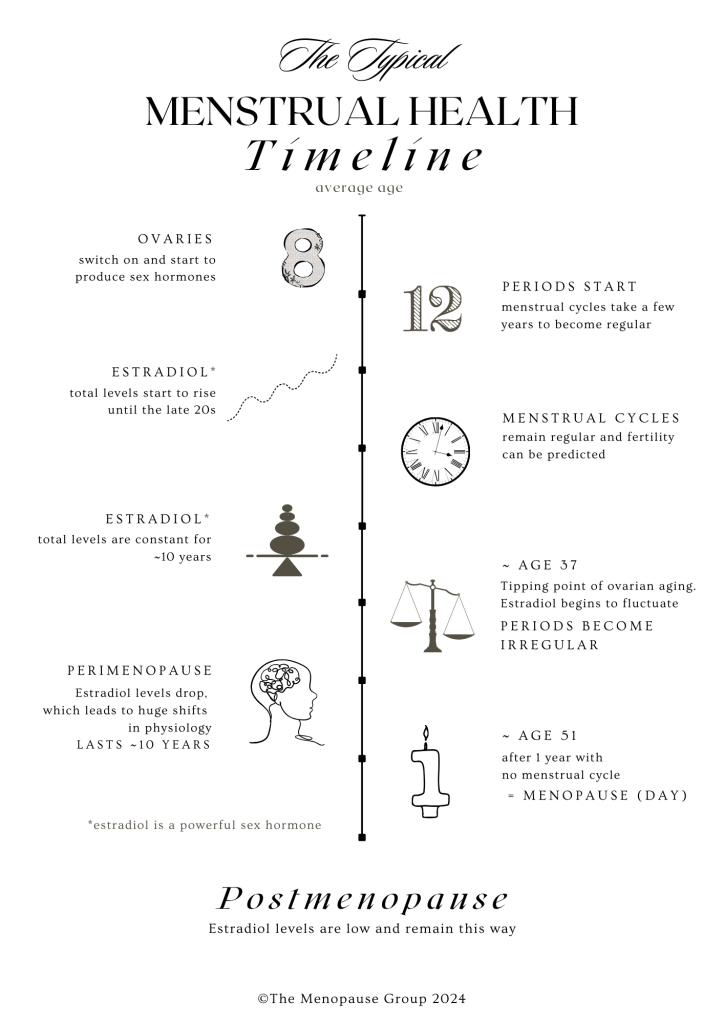Many, have asked why we don’t talk about menopause when what we really should be asking is ‘How can we learn to talk about menopause?’
The word menopause appears twice on the Relationships and Sex Education and Health Education guidance published by the Department of Education in 2019.
You will find it on page 29 under the section titled –
By the end of secondary school – Schools should continue to develop knowledge on topics specified for primary as required and in addition, cover the following content by the end of secondary: Intimate and sexual relationships, including sexual health
To have the word menopause mentioned in the curriculum was certainly a huge leap forward and a long overdue addition to the other relationship and sex education topics. However, in specific content, I have not been able to speak with anyone who knows exactly what is being delivered across the country.
What about Menstrual Health?
As with all topics in education they need to be introduced at various points, in relevant and meaningful terms for the age group and cohorts.
The word menstrual gets 7 mentions in various forms as either products, cycle, or wellbeing, and menstruation gets 6 mentions. Go the Period Campaigners!
However, there is still no mention of menstrual health in the curriculum, currently.
The term Menstrual Health was developed through a multi-stage process, led by the Terminology Action Group of the Global Menstrual Collective in 2021 – only 200 years after the word menopause was formally adopted thanks to French Physician Charles-Pierre-Louis de Gardanne to describe the permanent cessation of menstruation.
Since 2021 the World Health Organisation has placed menstrual health firmly on the global agenda.
What about the missed generations who have not learned about menstrual health?
Trying to learn about menopause without first learning about the prequel event called menstrual health, has proven time and time again to be the one thing that is holding back the conversation.
Let’s take a closer look at the missing menopause memo.
Menstrual health, like mental health, can be positive or negative. Most narratives place anything to do with menstruation in the negative column and refer to ‘period problems’.
Menstrual health is every single day of a menstruators life, not only the days of bleed.
For those who follow the typical timeline, they will experience around 450 menstrual cycles over 40-years. The menstrual health timeline is forecast the moment two sets of chromosomes unite. Menstruation will start a couple of years after the ovaries have ‘switched on’.
The regular infradian rhythm called the menstrual cycle has an unpredictable sequence to start with and then within a few years becomes mostly predictable, creating ovarian/uterine patterns that are relative to each person. On average menstrual cycles range from 21-35 days in length.
The first 30 years of circulating menstrual cycle hormones influence everything from muscles, bones, digestion, energy, metabolism, immunity, respiration, and the brain. In total, there are around 400 roles in the body that are collectively driven by sex hormones, in all humans not only those who menstruate.
It subsequently makes sense that the fluctuating cyclical version of events, driven by the ovaries in a menstruator will have a cyclical impact on physiology, second by second. The last 10 years of pre-planned ovarian activity is one that becomes less predictable, known as perimenopause. The tipping point of perimenopause, also known as accelerated ovarian aging, is estimated to be on average age thirty-seven and a half years.
Aging conundrum: A perspective for ovarian aging. Research has shown that the decline in follicle numbers is a bi-exponential function of age, and this change occurs at the critical value of 25,000 follicles at the age of 37.5 years. Frontiers in Endocrinology
From this point forward ovarian aging speeds up, slows down, does a loop the loop and then closer to the typical menopause day (51) the menstrual cycle stops for several months at a time, until it finally stops, permanently.
In my opinion, to truly understand menopause and create confident conversations, you have to know about the menstrual health timeline and the sequence of events that start 40 years prior.

If you are in the Helping Others business in Birmingham, and would like to learn more about menstrual and menopause health education then visit our website www.menopauseevolution.co.uk

